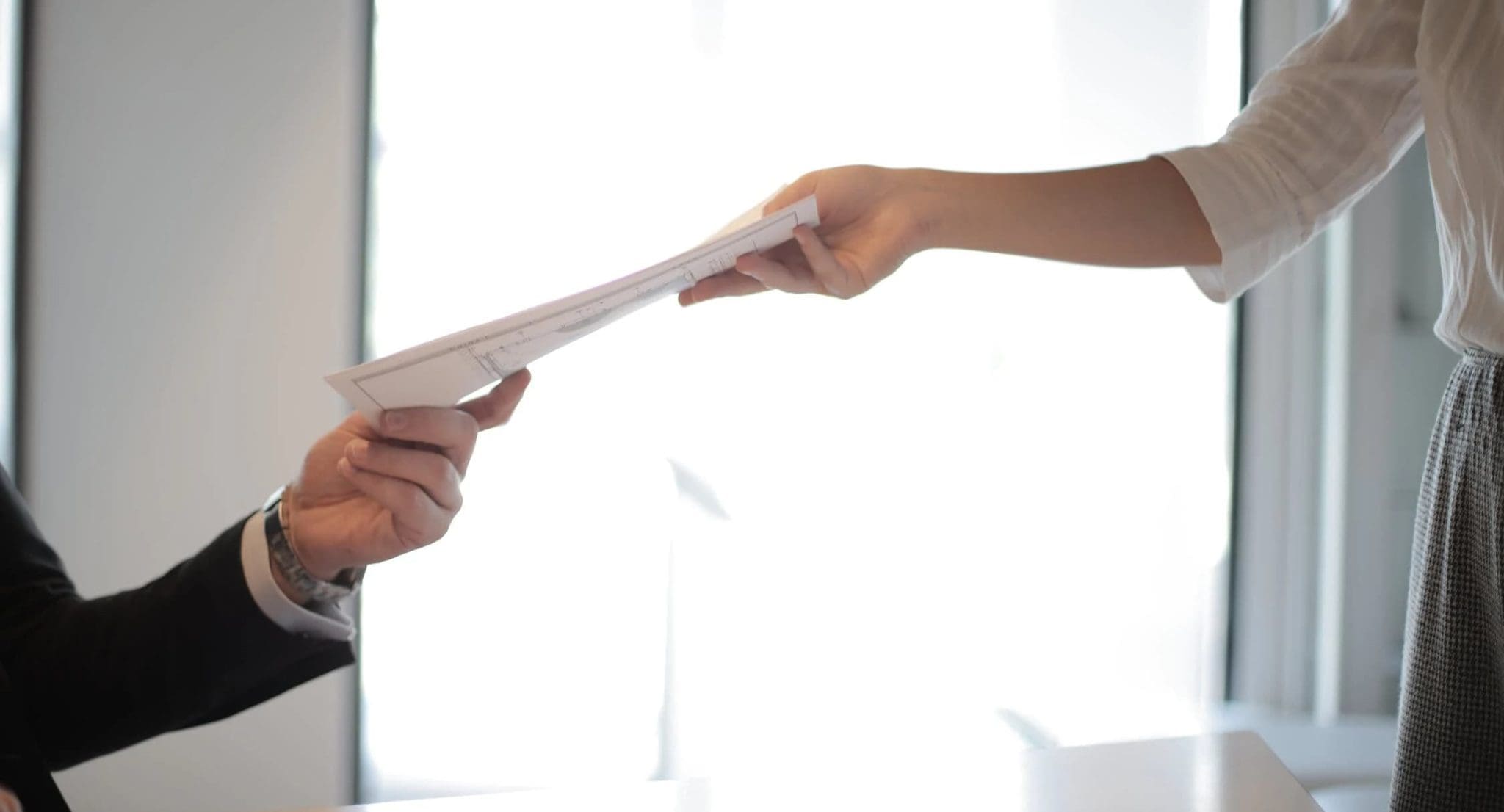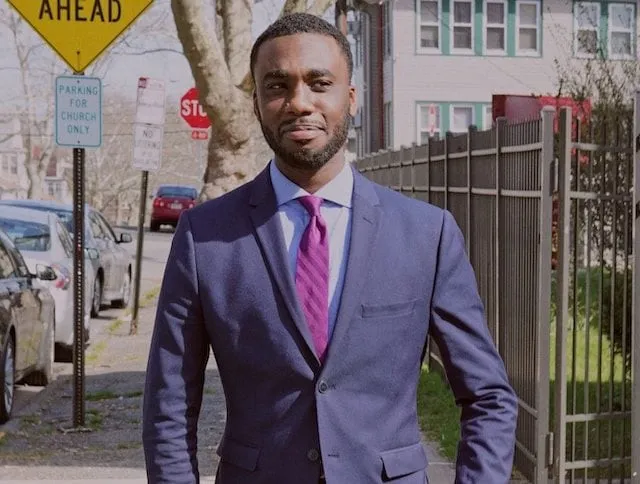Spouse Visa Refused
If your Spouse Visa has been refused by the Home Office, one of our immigration lawyers can help you.
Call us on 0371 454 3636 for immediate help & assistance with your situation. We’re here to help you in person, via the phone or online.
Read our 1001 reviews
Request a call back from our immigration experts
Benefits of Choosing IAS for Your Sponsor Licence Needs
Our dedicated UK corporate immigration lawyers deliver our services through a comprehensive and personalised approach suited to fit each business client that we work with.
We can assist you in getting a UK Sponsor Licence, generating a certificate of sponsorship, and applying for a work visa for your employee. Whether this is your first application, your initial application was refused, or you were found to not be compliant in the past, we can help.
With a successful track record, IAS eases the process for you so you can focus on other parts of your business. Here are more things you enjoy by working with us:

Our lawyers will assess your Sponsor Licence case 1-1 to understand its unique aspects.



We provide customised guidance for Sponsor Licence applications to increase chances of approval.



We assist with maintaining compliance with the UK government’s rules for employing overseas workers.



Our team offers detailed assistance in making any critical changes to the sponsor management system.
Services we Provide
What Is a Spouse Visa Refusal?
A Spouse Visa refusal happens when the UK Visas and Immigration (UKVI) denies your Spouse Visa application to allow you to join your UK-based partner, due to various reasons that include the failure to:
- Provide proof of a genuine relationship
- Demonstrate English language proficiency
- Meet the required financial threshold
- Gather all the required documents
The implication of your Spouse Visa application refusal under the UK immigration law is that it can delay or stop your plan to reunite with your UK-based partner. Additionally, it can impact your future UK visa applications, as the immigration officers will scrutinise it to ensure it meets the required standard.
Consequences of a Spouse Visa Refusal
Receiving bad news like a visa refusal after spending money, time, and waiting periods filled with anxiety can be deeply distressing. Couples may be emotionally stressed and be forced to live apart. Spouse Visa refusal can result in complex and prolonged immigration proceedings that may require legal representation, which will demand financial commitments from couples.
Common Reasons for UK Spouse Visa Refusal
There are several reasons why a Spouse Visa may be refused by the Home Office. It may be because you do not meet the Spouse Visa eligibility requirements, such as the financial requirements or the genuine relationship requirement. However, most Spouse Visa refusals are not due to the ineligibility of the applicant but rather due to a lack of evidence to prove that you are able to meet the requirements.
The UKVI can refuse a UK Spouse Visa application for various reasons. However, the following are the most common reasons for Spouse Visa application refusals:
Lack of Evidence of a Genuine Relationship
If you cannot prove having a genuine and subsisting relationship with your UK-based partner, the UKVI can reject your application. You must prove that the relationship between you and your partner is real and not fake. You must also demonstrate that you’re truly married to your spouse (if married) and have not engaged in an arranged marriage of convenience for immigration purposes.
To support your claim for a genuine and subsisting relationship with your UK-based partner, you’re required to provide certain documents, including:
- Photographs you took together
- Joint financial commitments
- Communication logs, such as call records
- Records of travel or visits to each other
- Text messages and emails
To determine the sincerity of your relationship with your partner, the UKVI may invite you for an interview. These interviews are usually critical, and they analyse your answers to the questions they ask you. You must ensure that your answers are consistent, as discrepancies in your response may signal that you arranged the relationship for travel purposes. Prepare to answer questions regarding the history of your relationship and plans, as a genuine couple would.
Financial Requirements Not Met
The UKVI may refuse your Spouse Visa application if you cannot meet the financial requirement. As of May 2025, your UK-based partner (sponsoring partner) must demonstrate that they earn up to £29,000 to sponsor you. The number of your dependent children accompanying you will determine the additional fees you need to pay.
To demonstrate meeting the financial requirements for the UK Spouse Visa, the documents to be provided include:
- 6 months’ bank statement or payslips
- Employment letter
- Job contract
- Tax returns
- Business accounts
The UKVI can reject Spouse Visa applications if applicants miscalculate the total income threshold required. Additionally, submitting bank statements or payslips that fall outside the required time frame or omitting necessary documents to prove financial sufficiency can result in a refusal. When preparing your Spouse Visa application, double-check all figures and ensure that your documentation, required to meet the monetary threshold, is complete and up-to-date.
Incomplete or Incorrect Application Forms
Another common reason for UK Spouse Visa refusal is the submission of incomplete or incorrect application forms. The UKVI is thorough with Spouse Visa applications. Therefore, any application that lacks accuracy, honesty, financial sufficiency, and a proven relationship background between the applicant and the sponsor risks refusal. Hence, you must ensure the accuracy and completeness of all information in your application, presented in the required format, as it is crucial at every stage of your Spouse Visa pursuit.
If there are discrepancies between the income you declared and the figures in your submitted bank statements or payslips, the UKVI may doubt the credibility of your application and refuse it at once. If your application is incomplete or contains errors, UKVI may refuse it without allowing you additional time to correct the mistakes. This can result in additional costs and stress in reapplying, and may affect your future immigration applications, most especially if the case is based on dishonesty. To avoid this common incomplete or incorrect application form, you should seek expert guidance from an immigration lawyer. Additionally, carefully review your spouse visa application form and answer all the questions honestly before submitting your application.
English Language Requirement Failure
Your Spouse Visa application may be refused if you don’t meet the English language requirement. Most foreign nationals, especially those from countries where English isn’t the first language, must demonstrate knowledge and understanding of English to integrate into the British local communities. This means that you’re required to pass an approved English language test, such as the International English Language Testing System (IELTS).
The IELTS Life Skills test assesses individuals’ speaking and listening skills. All Spouse Visa applicants must take the test at a Home Office-approved test centre, and the certificate, which expires after 2 years, must be valid at the time of application. The levels available for this test are the Common European Framework of Reference for Language (CEFR) A1, A2, and B1. The specific level you’re required to meet depends on the stage of your UK Spouse Visa application.
For an initial Spouse Visa application (switching to a Spouse Visa or entry clearance), you must obtain the CEFR level A1 (Beginner). To extend your Spouse Visa (further leave to remain), the requirements increase slightly, and you must attain a CEFR level of A2 (Elementary). Then, for Settlement (Indefinite Leave to Remain), the requirement rises to CEFR level B1 (Intermediate). Submitting expired test certificates, providing certificates from unrecognised test providers, or taking the test at an unapproved centre can result in an automatic visa refusal. Ensure you confirm the Home Officer’s approved test and centres before booking and submit them before the expiration to avoid this pitfall.
Other accepted English language qualifications include certain degrees taught in English, provided they’re verified by the UK National Information Centre (ENIC) as equivalent to a UK degree. If you fit into any of the following application categories as an applicant, you may not be required to meet the English language requirement:
- Over 65 years old
- Physically or mentally challenged (which prevents you from taking the test)
- National of a majority English-speaking country
Inadequate Accommodation
If you and your UK-based spouse cannot demonstrate in your Spouse Visa application that you have suitable accommodation in the United Kingdom, the UKVI may refuse your application. The UK immigration law sees suitable accommodation as housing that is:
- Not overcrowded.
- Owned by or legally occupied by you and your spouse (and any accompanying dependent).
- Compliant with the public health and safety standards.
- Not obtained by relying on public funds.
This accommodation includes owner-occupied property, private rented housing, or accommodation provided by your friends or family, as long as it meets the legal standards. The documents you need to demonstrate having suitable accommodation include the following:
- Property ownership document or tenancy agreement.
- A recent council tax bill or utility bill.
- Independent property inspection report confirming that the accommodation meets standards and is not overcrowded.
To avoid a refusal of your UK Spouse Visa application, you must provide all the required documents to convince the Home Office that you have suitable accommodation and won’t be stranded when you enter the UK. You must also prove that the accommodation meets the required standard and won’t burden the UK government.
Criminal Convictions or Immigration History Issues
Having criminal convictions or a poor immigration history can result in the refusal of your Spouse Visa application. You and your UK-based sponsor (spouse or partner living in the UK) are required to disclose all your criminal convictions, including the ones your sponsor committed under UK law and the ones you committed in your home country.
The Home Office will assess your sponsor’s character and suitability to bring you to the UK. You must also provide criminal record certifications from countries where you have resided for 12 months or more during the last 10 years (while more than 18 years old). In determining whether applicants meet this requirement, the Home Office evaluates applicants based on the following:
- Severity of the offence
- Term’s duration
- Period since the conviction
- Whether the applicant was remorseful and changed
Note that recently committed serious criminal offences, such as drugs, violence, serious fraud, and sexual misconduct, can result in an automatic refusal of your Spouse Visa application.
In addition to criminal convictions, your immigration history is also a great concern that must be addressed. Your past overstays, visa refusals, non-compliance with visa conditions, and efforts to remain in the UK illegally can give you a poor immigration history. Failure to provide a detailed immigration history, including those already resolved, can result in the refusal of your Spouse Visa application.
Marriage Validity Issues
The UKVI is already tired of receiving applications full of deception, such as submissions for Spouse Visa emanating from arranged marriages just for immigration purposes. Hence, they automatically refuse marriages that are conducted without proper legal procedures, which are also deemed void and fraudulent.
For a Spouse Visa to be granted, your marriage must be legally valid in the country where it took place, and it must meet the standards of recognition as outlined in UK immigration rules. To prove the validity of your marriage to your spouse living in the UK, you must provide various documents, including the following:
- Certified marriage certificates or civil partnership certificates.
- Proof of cohabitation.
- Divorce papers or death certificates of former spouses to demonstrate you’re not in any other marriage relationship and that the marriage with your current partner is valid.
Provide documents from valid and verifiable sources. Failure to provide authentic documents to support your Spouse Visa application can result in its refusal.
Inconsistencies Between Partner Information
Another common reason for the Spouse Visa refusal is inconsistencies between your information and that of your UK-based partner. While assessing your application forms and documents to verify the authenticity of your relationship as a couple, the UKVI expects you and your partner to present clear, truthful, and consistent information. They can refuse your Spouse Visa application if they discover discrepancies in the information you provide through your application forms, supporting documents or interviews.
The consistency of the information you and your UK-based partner provide is essential, as it helps UKVI verify that you and your partner are in a real relationship and you know each other very well. Providing conflicting information, such as how you met each other, important dates (first meetings, anniversaries, wedding dates, etc.), and family backgrounds, can raise suspicions with UKVI that your relationship may not be genuine.
Common red flags in interviews or forms include:
- Misspelt names or use of different names
- Wrong dates
- Inconsistent addresses
- Mismatched timelines in the application
- Different accounts of supposed shared experiences as couples
- Different versions of how you communicate
These red flags can cause immigration officers to doubt the credibility of your Spouse Visa application. To avoid these issues, you and your partner should consult an immigration lawyer to guide you in presenting your information appropriately. You and your partner should review the details in your application form and ensure they are synchronised. You also need to prepare thoroughly for the visa interview (if applicable) by discussing crucial facts and shared experiences to ensure consistency of the individual’s story.
Missing Translations or Unofficial Documents
Submitting documents that are not originally in English alone can cause UKVI to refuse your Spouse Visa application. You are required to provide certified English or Welsh translations of all documents in a foreign language. This helps the immigration officers to analyse the content and authenticity of the document you submitted.
The documents must be translated by a translator accredited by the Home Office. The translated documents must come with:
- A signed declaration attesting to the translation’s accuracy
- Translator’s full name and contact details
- The date of translation
- A stamp or seal indicating the accreditation
UKVI doesn’t accept unofficial translations of documents or those that are illegible. Submitting unofficial translations of your document can result in delays, the refusal of your application, and, in some cases, legal issues.
What to Do After a Spouse Visa Is Refused? Next Steps Explained
Having your Spouse Visa refused can be an upsetting event that is often detrimental to an individual’s plans to join their family in the UK and begin a life together here. Luckily, a UK Spouse Visa refusal can be challenged through the appeal process.
You can appeal a Spouse Visa refusal under human rights grounds using Article 8 of the European Convention on Human Rights, which states that:
“Everyone has the right to respect for his private and family life, his home and his correspondence…There shall be no interference by a public authority with the exercise of this right except such as is in accordance with the law and is necessary in a democratic society in the interests of national security, public safety or the economic well-being of the country, for the prevention of disorder or crime, for the protection of health or morals, or for the protection of the rights and freedoms of others.”
When the UKVI refuses your Spouse Visa application, they’ll send you a refusal letter outlining the reasons for the visa denial. The refusal letter will explain whether you can appeal the decision or reapply for the Spouse Visa. You can challenge the decision by:
- Administrative review
- Appeal to the First-tier Tribunal
- Judicial review
Administrative Review
The Home Office conducts administrative review internally. It is usually handled by a different caseworker to find out whether there was an error in the initial decision and correct it. If you think the Home Office decision is unjust, you should request administrative review. You must apply for the administrative review within specific timelines:
- 28 days outside the UK
- 14 days within the UK
- 7 days if you’re detained or your passport is retained
Appeal to the First-tier Tribunal
You can file an appeal to the First-tier Tribunal (Immigration and Asylum Chamber) to challenge the Home Office’s decision to refuse your Spouse Visa application. UK visas, such as the Visitor Visa, Student Visa, and work visas, may not be eligible for appeal. You should file this appeal if you believe that the Home Office didn’t assess your application lawfully.
You can only appeal a visa refusal if the refusal letter confirms you’re eligible to do so. After receiving the refusal letter from the Home Office, applicants are required to appeal to the First-tier Tribunal within 28 days, or 14 days if applying from abroad or within the UK, respectively. It can take 6 to 12 months to get a decision on this type of appeal.
Judicial Review
If you’re not satisfied with the First-tier Tribunal’s decision, especially if you think it was illogical, unlawful, or flawed in its procedure, you can request a judicial review from the Upper Tribunal Immigration and Asylum Chamber (UTIAC). A judge presides over a judicial review (a legal process) which challenges the process that led to your visa refusal and not just the refusal decision. You must apply for a judicial review within 3 months of getting a refusal decision on your visa application.
How to Appeal a Spouse Visa Refusal in the UK: What to Expect
If the UKVI denied your Spouse Visa application and the refusal letter permits you to appeal the decision, you can challenge the decision based on the following grounds:
- Human rights violations: You can appeal your Spouse Visa refusal if the decision breaches your right to respect for family and private life (Article 8 of the European Convention on Human Rights [ECHR]).
- Legal errors: You can appeal the refusal decision if it was made due to factual inaccuracies, improper procedures, or a misrepresentation of the immigration rules by the Home Office.
- Factual mistakes: Another ground for challenging the refusal of your Spouse Visa is if the Home Office misinterpreted documents or falsified facts in evaluating your evidence.
Spouse Visa Refusal Appeal Process
The following is a breakdown of the Spouse Visa application refusal appeal process:
File a Notice of Appeal
After receiving a refusal letter from the UKVI, which allows you to appeal, you must then submit a notice of appeal to the First-tier Tribunal. You must do so within 14 days or 28 days of receiving the refusal notice, depending on whether you’re in the UK or outside the UK, respectively. Include additional updated information and documents you might have omitted in the previous application. Ensure you address every reason for refusal in the initial application.
When completing your application form, you can choose whether a decision should be made on your case based on the information in your form and the documents you provide, which costs £80. Alternatively, you would want a decision on your case following an oral hearing before a judge, where you can have a representative (advisor or lawyer), which costs £140.
Listing for Hearing
After submitting the notice of appeal, the First-tier Tribunal will list your appeal for a hearing. You will be offered a date to attend the hearing if you would like to participate in an oral hearing.
The Hearing
You may be required to attend the hearing in person, via video link, or by phone call, depending on your location. An independent judge will review your case at the hearing, by examining witnesses’ accounts, reviewing your evidence, and understanding the grounds for your appeal and the reasons for the refusal by UKVI.
Tribunal Decision
After the hearing, the judge will critically analyse all the submissions that took place during the hearing based on the pertinent immigration rules. This helps the judge determine whether to grant or deny the appeal. The judge usually takes 4 weeks to decide on an appeal submitted to the First-tier Tribunal.
Outcome of the Decision
If your appeal is successful, the Home Office will be required to change its decision and grant you the visa. However, if your appeal isn’t successful, and you believe it didn’t follow the provisions of the law, or you have new evidence to support your claim, you can appeal to the Upper Tribunal. They can examine the case and assess the rulings made by the First-tier Tribunal.
Having legal representation can significantly help you. A professional immigration lawyer can ensure your appeal addresses all the reasons for the previous application refusal, to give you a higher chance of a successful appeal.
Can I Reapply After a Spouse Visa Refusal?
Yes. If you do not wish to appeal or your appeal was rejected, you can file a fresh application.
If you don’t want to go through the mentioned appeal processes, which can take between 6 and 12 months to receive a decision, you can reapply for the Spouse Visa. Additionally, if your Spouse Visa application was refused due to an incomplete application or documentation, errors, or an inability to meet specific criteria, reapplying for the visa may be a better option.
In your reapplication, you must learn from the mistakes you made in the previous application. You must ensure your new application addresses the reasons for the denial highlighted in the refusal letter. If your initial application was rejected due to insufficient finances, gather updated versions of all your documents, including 6 months’ bank statements or pay slips, property documents, and support your reapplication. Ensure that every other missing document is complete and assembled in the appropriate order.
There is no specific waiting period before reapplying for a UK Spouse Visa after a refusal. However, you must be well-prepared before filing a reapplication. You can remain in the UK after a Spouse Visa refusal, provided you submitted your application before the expiration of your initial visa. This is in line with Section 3C of the Immigration Act 1971, which permits individuals to lawfully remain in the UK for an extended period under the same conditions as those permitted by their previous visa (now expired), while waiting for a decision on the visa application they submitted.
If your new application is comprehensive and meets the standard requirements, it can save you time and increase your chances of success within the expected time frame. Seeking legal support from an immigration solicitor is crucial at this stage to help you prepare a refusal-proof application and also avoid oversight in your reapplication. A professional immigration lawyer can help you ensure that all facets of your UK Spouse Visa application are covered to the required standard.
How to Avoid Spouse Visa Refusals in the First Place
- Start with a well-prepared checklist: Ensure your application covers all the Spouse Visa requirements, including:
- Financial requirements
- Relationship evidence
- Proof of accommodation
- Ensure strong documentary evidence: Keep communication logs, dated photos, travel records, tenancy agreements, and other documents that prove a genuine and subsisting relationship between you and your partner.
- Review common mistakes before submission: Double-check your application for common mistakes, such as:
- Misspelled names
- Miscalculation of the financial threshold
- Inaccurate and incomplete documentation
- Consider a pre-application legal consultation: An immigration lawyer can ensure your application is top-notch and meets the Home Office’s required standards.
- Use templates and timelines to organise your file better: Sort and arrange your documents for easy assessment by immigration officers. Also, track deadlines for submitting certain documents in your application (if applicable).
Regardless of the option you are leaning towards (appeal or reapplication), we suggest you reach out to an immigration lawyer to find out which path will give you a higher chance of walking away with a Spouse visa and assist with ensuring that is the case. You can call us today on 03334149244 to discuss or reach out via live chat or contact form.
Why Use IAS to Handle Your Spouse Visa Issues?
At IAS, we assist foreign and UK-based individuals in applying for UK visas. Our immigration lawyers are experts in helping applicants navigate complex and overwhelming immigration challenges, such as visa refusals and the rigours required for reapplication.
We provide tailored support to identify the exact solution your immigration challenges require. We can guide you from the initial consultation through to appeal representation, ensuring your application has a higher chance of success.
You can schedule an in-person meeting with one of our immigration lawyers at IAS to discuss how we can assist you with any immigration needs you may have. Our professional immigration solicitors are readily available to support you.
IAS Services for Spouse Visa Refusals
We offer several services for Spouse Visa refusals, which include the following:
Spouse Visa Application Review
Our immigration solicitors carry out pre-submission checks and corrections on your application to identify and rectify any potential issues before you apply. This includes ensuring that all your documents are up-to-date and that you meet all the requirements for a UK Spouse Visa before submitting your application.
Appeal Representation
If the UKVI refuses your Spouse Visa application, our immigration solicitors offer full appeal support, from preparing your appeal (covering every reason for the refusal) and submitting the appeal to representing you at the Tribunal.
Document Support
We can assist you in gathering additional evidence and providing certified, translated copies of your documents in languages other than English. We ensure that your documents are in the appropriate format, labelled and arranged chronologically to help immigration officers assess your documents more efficiently.
Fresh Applications
If we discover that a new application is the best option for you, our immigration lawyers will help you build a comprehensive application. We can craft your new application to the required standard and ensure it addresses all the issues outlined in the refusal letter of the initial application. Contact us at +44 (0)333 414 9244 or message us through our online chat box for more information on how we can assist you in securing a UK Spouse Visa.
For expert advice regarding your Spouse Visa application, speak to our immigration lawyers today by calling 0333 363 8577.


Table of Contents
Table of Contents will appear here.Legal Disclaimer
The information provided is for general informational purposes only and does not constitute legal advice. While we make every effort to ensure accuracy, the law may change, and the information may not reflect the most current legal developments. No warranty is given regarding the accuracy or completeness of the information, and we do not accept liability in such cases. We recommend consulting with a qualified lawyer at Immigration Advice Service before making any decisions based on the content provided.
Frequently Asked Questions
The evidence of a continuous relationship is important to the success of a Spouse Visa application. The Home Office is tasked with identifying fraud marriages, so your information will be analysed in great detail in order to identify if you have had a continuous relationship.
The common misconception with Spouse Visas is the assumption that the process is relatively simple. If the relationship is genuine and there was a genuine wedding then you should have a good chance of convincing the Home Office that the relationship is real. However, as the fraudulent applications get more complex, the Home Office will look for any discrepancies in your application as a reason to refuse your Spouse Visa.
Minor issues can lead to a Spouse Visa refused letter being issued, which can be very distressing for couples in a genuine relationship. The applicant should be prepared for all information surrounding the Spouse Visa application to be scrutinised.
Spouse visa extensions are given on the basis that you still meet all of the eligibility criteria that applied when you first applied for your visa.
Extensions, therefore, may not be granted if you are found to no longer fulfil any of the criteria at the time of your application for extension.
For example, if you cannot prove that you are still in a genuine relationship with your sponsor, you are not living with them full-time, or that you no longer earn enough to meet the minimum income requirements, you will likely not be granted an extension on your visa.


What our clients are saying
How our UK Immigration Lawyers can help
At the Immigration Advice Service our lawyers specialise in a wide range of UK visas, nationality and asylum applications and have represented clients in various successful complex and high-profile cases.















